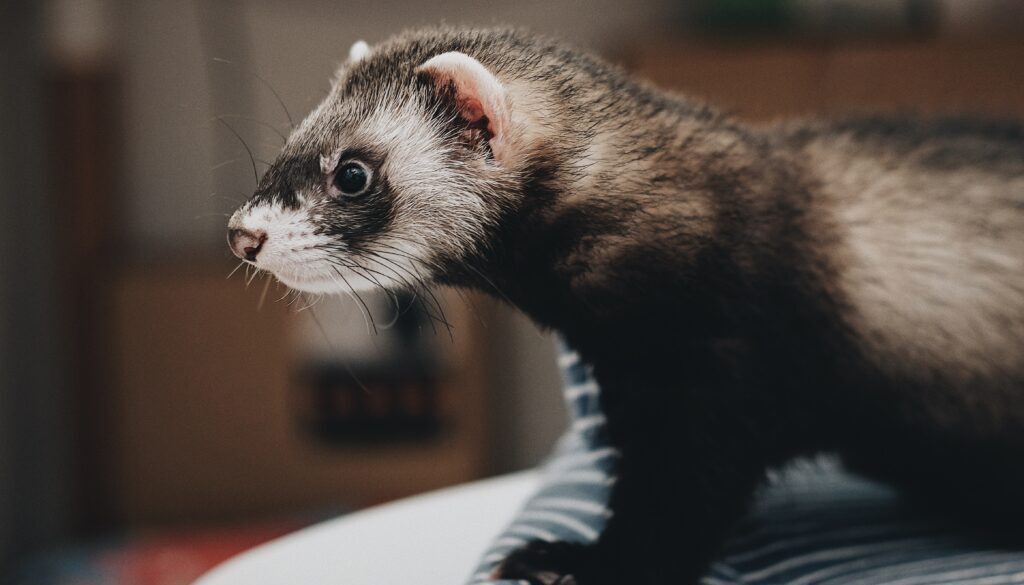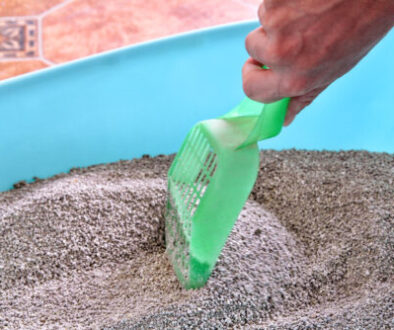What’s it like to have a Ferret as a Pet?
Those willing to step outside the typical pet options might consider a ferret. What should you know? Here are some pros and cons.
Habitat. They require an enclosure similar in size to what a large-breed rabbit would need, allowing them to burn off high levels of excessive energy. Also, section off a separate bathroom space in their cage and encourage independent play by placing tunnels, toys, and ramps for them. Feed your ferret frequent, small meals, and clean their litterbox every two to three days.
Training. Incredibly playful, your ferret will enjoy playing games with you! Hide-and-seek is one of their favorites, finding the smallest spaces to squeeze into. Like dogs, these intelligent creatures can easily be taught tricks, even in their adulthood. Behavior. Well-known for their somnolent (sleepy) tendencies, they snooze 18 to 22 hours every day – so deeply as to appear comatose or even deceased, with a limp, nonresponsive body. Despite this, they need three to four hours of quality exercise, outside their cage, which can be broken up to suit your schedule. These escape artists might figure out the locking mechanism on their cage and will discover ways out of windows or doors if given any opportunity.
Behavior. Well-known for their somnolent (sleepy) tendencies, they snooze 18 to 22 hours every day – so deeply as to appear comatose or even deceased, with a limp, nonresponsive body. Despite this, they need three to four hours of quality exercise, outside their cage, which can be broken up to suit your schedule. These escape artists might figure out the locking mechanism on their cage and will discover ways out of windows or doors if given any opportunity.
Activity. Many believe ferrets naturally possess an aggressive attitude and a tendency to bite. Similar to a puppy, training will reduce this to nipping only when excited, or when teething, afraid, or in pain. Unneutered males become aggressive and bite, which is a good reason for getting them fixed!
Diet. As carnivores, focus on meats or ferret food found at your local pet store and avoid fruits or vegetables. Grapes and raisins are poisonous, giving them vomiting, diarrhea, and kidney failure. They do need a ferret-specific diet and cannot digest dairy products or complex carbohydrates in fresh produce.
Health. Extremely social animals, ferrets need companionship and thrive in a colony. Having more than one ferret means they can keep each other company when you’re away. Without a companion, their mental health might suffer, leading to loneliness and a shortened lifespan. In addition, they need annual checkups, and the same strains of influenza which affect humans will infect your ferret, with similar symptoms.
Odor. Ferrets do smell: males’ extra hormones give off a musky odor, and they tend to urinate on themselves during mating rituals. Neutering greatly reduces both of these. Other ways to reduce the smell include their diet, cleaning their ears, and keeping an eye out for gum disease. Some owners remove the anal sacs, called de-scenting¬, a hotly debated procedure.
Lastly, make sure to keep them away from other pets in your home, as they will exhibit territorial tendencies, especially with dogs. With a good, carnivore-friendly diet, lots of playtime, and neutering, your ferret might live up to ten years.




